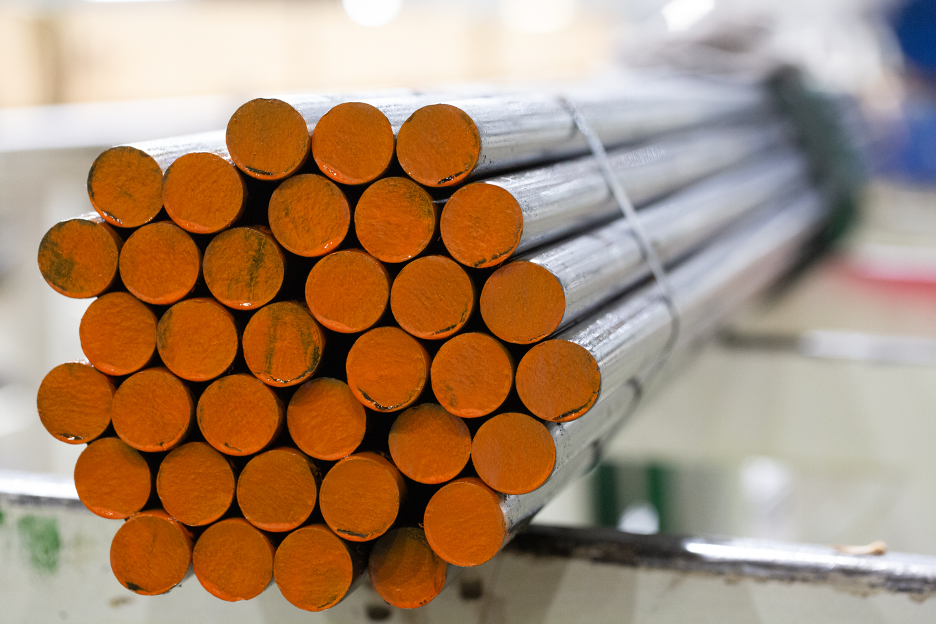Electric vehicles (EVs) have been gaining significant popularity in recent years as a more sustainable and environmentally friendly alternative to traditional internal combustion engine vehicles.
These cutting-edge vehicles rely on a complex array of metals and materials to function effectively. From the battery pack to the electric motor, the selection and use of specific metals play a crucial role in the performance, efficiency, and overall design of EVs.
As the demand for EVs continues to rise, understanding the various metals used in their construction has become increasingly important. This automotive metal supplier in Chicago, Illinois is going to highlight some of the most common metals that are found in electric vehicles.
The Importance of Metals in EVs
Metals are the backbone of electric vehicle technology, enabling the design, construction, and operation of these advanced transportation solutions.
Each metal serves a specific purpose, contributing to the overall functionality, durability, and performance of the EV. The selection and procurement of these metals are critical to the success of EV manufacturers and the continued growth of the industry.
Common Metals Used in EVs
Electric vehicles incorporate a diverse range of metals, each with its unique properties and applications. Some of the most common metals in EVs include:
- Aluminum
- Steel
- Copper
- Lithium
As the leading automotive metal supplier in Chicago, Illinois, let’s explore each of these metals in more detail:
Aluminum in EVs
Aluminum is a lightweight, durable, and corrosion-resistant metal that plays a significant role in the construction of electric vehicles. Its versatility allows it to be used in various components, including the vehicle’s body, chassis, and suspension systems.
Aluminum’s lightweight nature contributes to the overall energy efficiency of the EV, as it helps to reduce the vehicle’s overall weight, resulting in improved range and performance.
Furthermore, aluminum’s exceptional thermal conductivity makes it an ideal material for heat sinks and cooling systems, which are crucial for the efficient operation of the EV’s battery and other electronic components. The use of aluminum in EVs not only enhances their performance but also contributes to their sustainability by reducing the overall carbon footprint.
Steel in EVs
Steel is another essential metal used extensively in the manufacturing of electric vehicles. Known for its strength, durability, and cost-effectiveness, steel is primarily utilized in the vehicle’s frame, body panels, and structural components. The high-strength properties of steel ensure the safety and integrity of the EV, protecting passengers in the event of a collision.
Additionally, advancements in steel manufacturing have led to the development of lightweight, high-strength steel alloys that further enhance the EV’s performance and efficiency. These specialized steel alloys help to reduce the overall weight of the vehicle without compromising its structural integrity, ultimately contributing to improved range and energy efficiency.
Copper in EVs
Copper is a critical metal in the construction of electric vehicles, playing a vital role in the electrical systems and components. Its excellent conductivity makes it an essential material for the wiring, motors, and other electrical connections within the EV.
Copper’s ability to efficiently transmit electricity is crucial for the effective operation of the vehicle’s powertrain, charging systems, and various electronic features.
Furthermore, copper’s thermal management properties make it an ideal choice for heat sinks and cooling systems, which are necessary to maintain the optimal operating temperatures of the EV’s battery and other sensitive components. The use of copper in EVs ensures reliable and efficient electrical performance, contributing to the overall reliability and longevity of the vehicle.
Lithium in EVs
Lithium is a crucial metal in the development of electric vehicles, as it is the primary element used in the construction of lithium-ion batteries, which serve as the power source for EVs. These high-energy-density batteries are responsible for storing and delivering the electrical energy that drives the vehicle’s electric motors.
The availability and supply of lithium have become a critical concern for the EV industry, as the increasing demand for these vehicles has put significant strain on the global lithium market. Ensuring a reliable and sustainable supply of lithium is essential for the continued growth and adoption of electric vehicles and for any automotive metal supplier in Chicago, Illinois.
Looking for an Automotive Metal Supplier in Chicago, Illinois?
As the electric vehicle industry continues to evolve and expand, the demand for high-quality automotive metals has never been greater. Are you searching for a reliable automotive metal supplier in Chicago, Illinois? If so, Banner Industries is the top choice. We are a leading provider of a wide range of metals and materials for the EV and broader automotive industry.
Contact us today at (800) 323-9732 to learn how we can help support your automotive projects.







